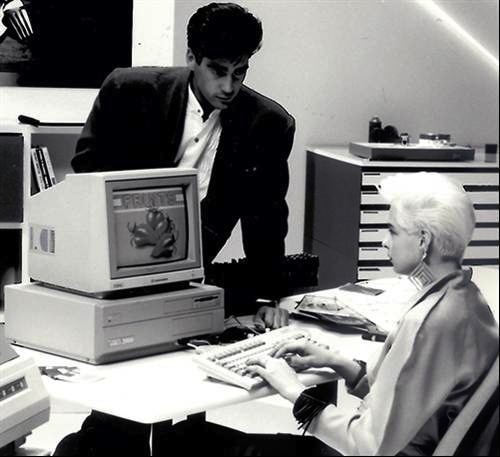 Aaron Swartz killed himself in his Brooklyn apartment Friday. His girlfriend found Swartz’s body hanging from a belt, sources said.
Aaron Swartz killed himself in his Brooklyn apartment Friday. His girlfriend found Swartz’s body hanging from a belt, sources said.
The 26 year old internet activist was facing federal charges for allegedly hacking into MIT’s journal archives.
Swartz was a wizardly computer prodigy, a savant who designed his first website at age 13, and at 14, helped develop code that delivered ever-changing Web content to users. The RSS program, that alerts users to new blog posts and allows users to subscribe to online information, is nearly ubiquitous. He later became a steadfast crusader to make that information freely available.
Aaron founded Demand Progress, an Internet group that was instrumental in fights to keep the internet open and free, and in the battle to defeat the Stop Online Piracy Act. His long list of influential efforts includes the Internet Archive, Creative Commons, Wikipedia and the Recap collection of legal documents. Aaron was a flash point in the debate over whether information should be made widely available, in the face of governments and corporations that argued that some information must be kept private for security or commercial reasons.
Aaron Swartz dropped out of High School after just one year, and was admitted to Stanford as a sociology major, but dropped out after a year there as well, citing the academic apathy of his fellow undergrads. He would become an Internet folk hero, a cyber Robin Hood, pushing to make much Web content free and open to the public. Swartz co-founded a company that merged with Reddit, a user-generated social news site, one of the most highly trafficked news sites in the world. He had a financial windfall in 2006 when Reddit sold to Conde Nast’s Wired Digital.
Swartz’s legal troubles began two years ago when prosecutors accused him of downloading millions of scientific journals from MIT and “JSTOR” – a subscription-only scientific and literary journal storage repository. Aaron was indicted on federal charges of gaining illegal access to JSTOR, and was due to stand trial in April. The charges included wire fraud and computer fraud, carrying potential penalties of up to 35 years in prison and $1 million in fines, punishments that friends and family say haunted him and led to his suicide. Swartz had pleaded not guilty to the charges.
To clarify: Aaron was being threatened with 35 years in prison and one million dollars in fines for downloading too many free articles from the online database of scholarly work JSTOR.
Mr. Swartz neither hacked nor stole anything. He had legitimate access to the JSTOR database and every right to download its documents. He just downloaded more than JSTOR would have liked. It’s like taking too many of those free food samples at Costco or borrowing too many library books. Probably shouldn’t do it, but nothing to threaten someone with their adult life in prison over. The papers he “stole” were free (you can’t steal FREE), and intended to be widely disseminated.
According to the indictment, Mr. Swartz broke into a computer-wiring closet on the M.I.T. campus; when retrieving a computer he connected, he hid his face behind a bicycle helmet, peeking out through the ventilation holes. What Aaron allegedly actually did was use a simple computer script to use MIT’s network to download academic articles from the database – virtually the entire library – with the alleged intent of making them freely available. At the time, he was a fellow at the Edmond J. Safra Center for Ethics at Harvard.
JSTOR declined to press charges or pursue prosecution, but federal prosecutors – led by Massachusetts US District Attorney Carmen Ortiz – dropped a staggering 13 count felony indictment on Aaron for his alleged actions.




Carmen Ortiz, who is reportedly considering a run for MA governor – ensuring that Mitt Romney won’t go down in the annals of State history as their dumbest – went after Aaron with alarmingly disproportionate zeal. Perhaps she needed to make a name for herself by bagging a whale and this looked like the perfect opportunity, because despite the fact that both so-called “victims” wanted no part of any prosecution and stated that no damage was done, Carmen Ortiz brought five ridiculous charges against Aaron Swartz. When Aaron’s lawyer tried to do what any lawyer would do and try to have the charges dropped, Ortiz added eight more charges. To those who don’t watch TV crime procedurals, this is called “PILING ON”. Ortiz knew she couldn’t get a conviction for this non-crime, so she piled on more charges – hoping to terrify the young man into pleading guilty.

The law under which Aaron was being prosecuted is the outdated Computer Fraud and Abuse Act, enacted in 1986. 1986 – the same year Microsoft went public, Geraldo Rivera opened Al Capone’s vault, and the NEW YORK METS WON THE WORLD SERIES.
Prosecutors have a lot of discretion over what to charge under the 1986 Computer Fraud and Abuse Act, and how to value the loss, and Carmen Ortiz went whole hog. In 2010, Dan Kennedy reported how Ortiz’s office regularly ran roughshod over the constitutional rights of Americans and made a mockery of the basic principle that even the most loathsome speech needs the highest degree of protection. Ortiz has shown herself to be a prosecutor who does not understand proportionality and who regularly and recklessly uses the threat of unjust and overreaching charges to extort plea bargains from defendants, regardless of their guilt. She herself ought to be prosecuted for negligence and wrongdoing in pursuing a non-proportional sentence.
Aaron and Carmen had very different views on his alleged crime. Aaron clearly viewed his distributing of academic papers as an unadulterated good, spreading knowledge, Carmen Ortiz compared his actions to using a crowbar to break in and steal someone’s money under the mattress. She opted to condemn Aaron to serious prison time rather than, say, something tantamount to trespassing.
Mr. Swartz outlined his views on his blog
“It’s called stealing or piracy, as if sharing a wealth of knowledge were the moral equivalent of plundering a ship and murdering its crew. But sharing isn’t immoral — it’s a moral imperative. Only those blinded by greed would refuse to let a friend make a copy. We need to take information, wherever it is stored, make our copies and share them with the world. We need to take stuff that’s out of copyright and add it to the archive. We need to buy secret databases and put them on the Web. We need to download scientific journals and upload them to file sharing networks.”
In his 26 years, Aaron Swartz did more for the world than Carmen Ortiz will in her lifetime. Respected as a great programmer and a provocative thinker, an advocate for open access and the freedom of information online, a voracious reader who posted his reviews on his blog, which he wrote beautifully and prolifically. Carmen Ortiz’s record boasts a litany of prosecutions for tax evasion, gambling rings and bad check writing. Unlike Carmen Ortiz, Aaron Swartz made things. He dreamed up and built new things that changed the flow of information around the world. At 19, he volunteered to upload the archive of a defunct magazine he loved, Lingua Franca. In 2005, he contacted the writer Rick Perlstein, offering to create a Web page for him after reading a book of his he liked. “I smelled a hustle, asking him how much it would cost, and he said, no, he wanted to do it for free,” Mr. Perlstein wrote in The Nation over the weekend. “I thought: ‘What a loser this guy must be. Someone with nothing better to do.’ ” Mr. Perlstein wrote “Nixonland” – a favorite book of mine – and he became close friends with Aaron Swartz. Unlike Carmen Ortiz, blinded by political ambition, he had no agenda.
Judicial and executive malfeasance doesn’t exist in a vacuum. There are those jobs – lawyer and CEO come to mind – that disproportionally attract rotten people. We encourage them by measuring, say, their gross profits, or their conviction rate, instead of how wise and just they are. Then we are surprised by the appalling nature of the system. In the end it takes a malevolent executing instrument to make things like this happen to victims who can’t possibly defend themselves.
Even all these years after Al Gore created the Internet, the question of how aggressively government ought to dog those who believe in the “freeing” of information is as abstruse as ever. It may seem a recondite subject, but now that he is dead, Aaron Swartz will come to symbolize this tedious debate. The belief that Aaron Swartz described in a treatise in 2008, that information is power and should be shared, is under legal assault. America’s intellectual-property system is a travesty, a cancer that has metastasized and is laying waste to the information-based economy that brought us so much hope and prosperity in the 1990’s. We’ve become a Patent Republic.
Like all worthwhile humans, Aaron Swartz was complicated and given to bouts of melancholy. He wrote openly about his struggle with depression in a 2007 post titled “Sick.”
Surely there have been times when you’ve been sad. Perhaps a loved one has abandoned you or a plan has gone horribly awry. Your face falls. Perhaps you cry. You feel worthless. You wonder whether it’s worth going on. Everything you think about seems bleak–the things you’ve done, the things you hope to do, the people around you. You want to lie in bed and keep the lights off. Depressed mood is like that, only it doesn’t come for any reason and it doesn’t go for any either. Go outside and get some fresh air or cuddle with a loved one and you don’t feel any better, only more upset at being unable to feel the joy that everyone else seems to feel. Everything gets colored by the sadness.
Carmen Ortiz’s cynical calculation must have caused Aaron enormous grief and confusion. In my own long boring battle with depression, I’ve come to realize that the greater the ability to empathize, the greater the capacity for depression. There is something very powerful in confronting lack of humanity in others. It really levels one to its weakest link. Carmen Ortiz, like those Texas prosecutors who doggedly go after men who have been proven to have been wrongly convicted, just to save face, will always be part of the system rather than an instigator of change and betterment.
Lawrence Lessig, the Harvard Law professor who founded Creative Commons to advocate greater sharing of creative material online, said that boxing in Mr. Swartz with an aggressive case and little ability to mount a defense “made it make sense to this brilliant but troubled boy to end it.”
In a 2007 blog entry, Aaron Swartz wrote:
“There is a moment, immediately before life becomes no longer worth living, when the world appears to slow down and all its myriad details suddenly become brightly, achingly apparent”.
The last post he wrote on that blog, in November, was a detailed analysis of the final installment of the “Batman” series. Having given his readers a spoiler alert, he ended the post by writing: “Thus Master Wayne is left without solutions. Out of options, it’s no wonder the series ends with his staged suicide.”
In a statement, Aaron’s family said in part:
“Aaron’s death is not simply a personal tragedy. It is the product of a criminal justice system rife with intimidation and prosecutorial overreach. Decisions made by officials in the Massachusetts U.S. attorney’s office and at M.I.T. contributed to his death.”
MIT has launched an internal probe of the events leading up to his suicide. On Sunday evening, M.I.T.’s president, L. Rafael Reif added, “It pains me to think that M.I.T. played any role in a series of events that have ended in tragedy.”
M.I.T.’s web site was inaccessible at times on Sunday, hackers claiming responsibility. JSTOR, for its part, posted a note over the weekend describing Mr. Swartz as “a truly gifted person who made important contributions to the development of the Internet and the Web from which we all benefit.”
Carmen Ortiz declined to comment on Aaron Swartz’s death. Alas, she doesn’t need to let Aaron Swartz’s death stand in the way of her quest for justice. She could follow the example of Pope Stephen VI who managed to have his predecessor put on trial even though he was long dead and buried. The body was disinterred, the rotting corpse was clad in papal vestments and propped up in a throne, placed on trial, found guilty, stripped of its sacred vestments, deprived of three fingers, clad in the garb of a layman, quickly buried, then dug up all over again and finally thrown into the river Tiber.

But seriously, over Aaron Swartz’s dead body should Carmen Ortiz have a future in politics. Hers is a small and insignificant life compared to what Aaron Swartz’s would have been. Aaron’s death is an incalculable loss to the world. Releasing the information in the JSTOR database was a matter of principle for Aaron, not one driven by ego, criminal intent or monetary benefit. I suppose the absurdist punishment demanded by the U.S. Attorney was a matter of principle, too. Just as the lack of punishment for the racketeers at AIG and Goldman Sachs was a matter of principal. It is of preeminent importance that order be maintained and the system sustained. Aaron believed that the internet was a great democratizing tool. Let’s prove him right.
photo credit: creative commons licensed by jacob appelbaum